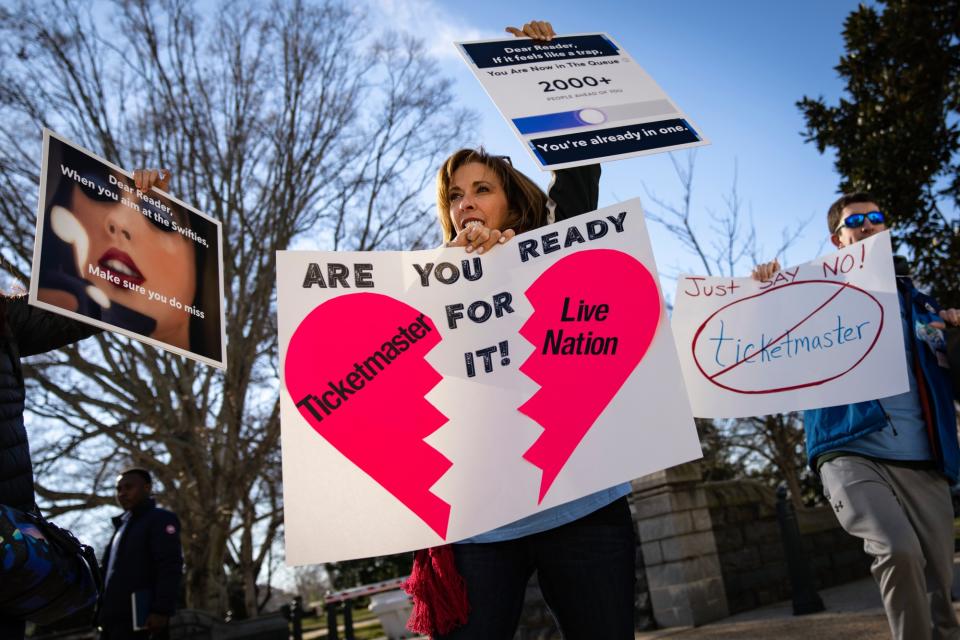Ticketmaster antitrust lawsuit could give new hope to ticketing startups

The United States Department of Justice and 30 state attorneys general filed a lawsuit against Live Nation Entertainment, the parent company of Ticketmaster, for alleged monopolistic practices.
Live Nation and Ticketmaster merged in 2010, creating a dominant entertainment machine that controls the majority of ticket sales and venue bookings in the country. But Taylor Swift fans' experience buying tickets for the Eras tour in late 2022 was so horrific that legislators took a closer look at the entertainment giant's control over the industry -- the presale was riddled with glitches and hours-long wait times, while the public sale was canceled due to high traffic.
"Live Nation suffocates its competition using a variety of tactics, from acquisitions of smaller regional promoters and venues, to threats and retaliation to agreements with rivals," said U.S. Attorney General Merrick Garland in a press conference on Thursday.
This isn't just a Swiftie problem -- rather, the pop star's cultural ubiquity shed a brighter spotlight on the frustrations people have with Live Nation-Ticketmaster. From punk bands to podcast hosts, poor experiences with Ticketmaster have made the company loathsome to fans. In April, when the Dungeons & Dragons actual play show Dimension 20 put tickets on sale for its performance at Madison Square Garden, Ticketmaster's dynamic pricing structure made ticket prices so astronomically high that they were unattainable for most fans. Dropout, the company that produces Dimension 20, later stated that dynamic pricing -- which automatically raises ticket prices based on demand -- was not explained to them before ticket sales.
If a breakup were to occur, it could also pave the way for other ticketing startups to gain traction in an industry where they now face an uphill battle when going against Ticketmaster. That's led to businesses in this space trying to disrupt the current system by building a new one -- like on the blockchain, for example, or by focusing only on the secondary market.
Live Nation executive vice president Dan Wall published a statement responding to the allegations in the Department of Justice's lawsuit.
"The complaint—and even more so the press conference announcing it—attempt to portray Live Nation and Ticketmaster as the cause of fan frustration with the live entertainment industry," the statement says. "It blames concert promoters and ticketing companies—neither of which control ticket prices—for high ticket prices. It ignores everything that is actually responsible for higher ticket prices, from increasing production costs to artist popularity, to 24/7 online ticket scalping that reveals the public’s willingness to pay far more than primary tickets cost."
Wall goes on to compare Ticketmaster's 5% take rate with that of companies like Twitch (50%), StubHub (37%), Uber (25%) and several more. But with the exception of StubHub -- a resale platform -- the comparisons are not quite one-to-one. Ticketmaster also charges various kinds of service fees, which exceed 5%. The fact remains that it's difficult for younger companies to disrupt Live Nation's hold on the industry since the vast majority of American venues are in business with them.
Garland claims that the public frustration with Live Nation's alleged monopolistic behavior is more acute in America than in other countries.
"In other countries, where venues are not bound by Ticketmaster's exclusive ticketing contracts, venues often use multiple ticketing companies for the same event, and fans see lower fees and more innovative ticketing products as a result," Garland said.

 Yahoo Finance
Yahoo Finance 